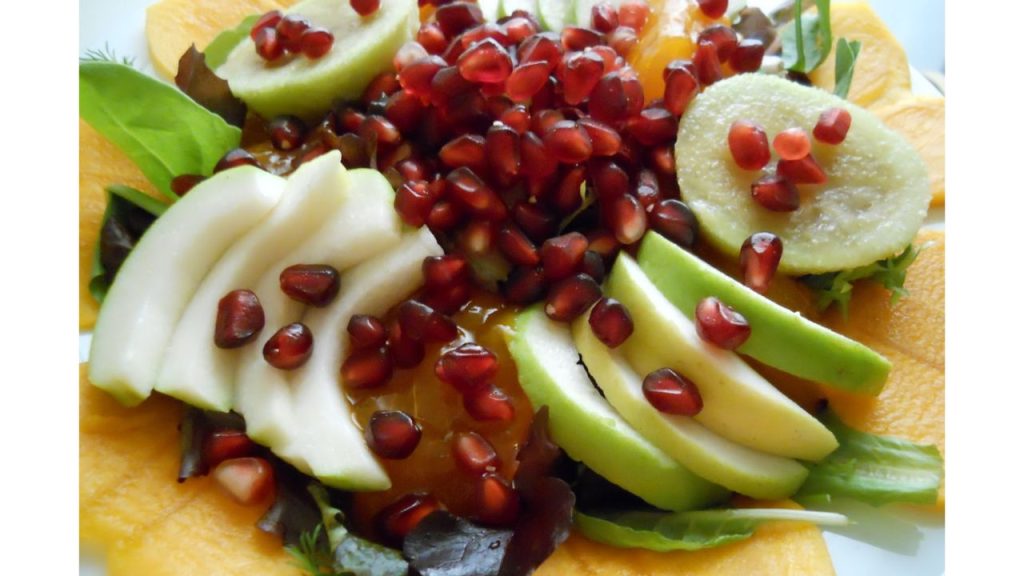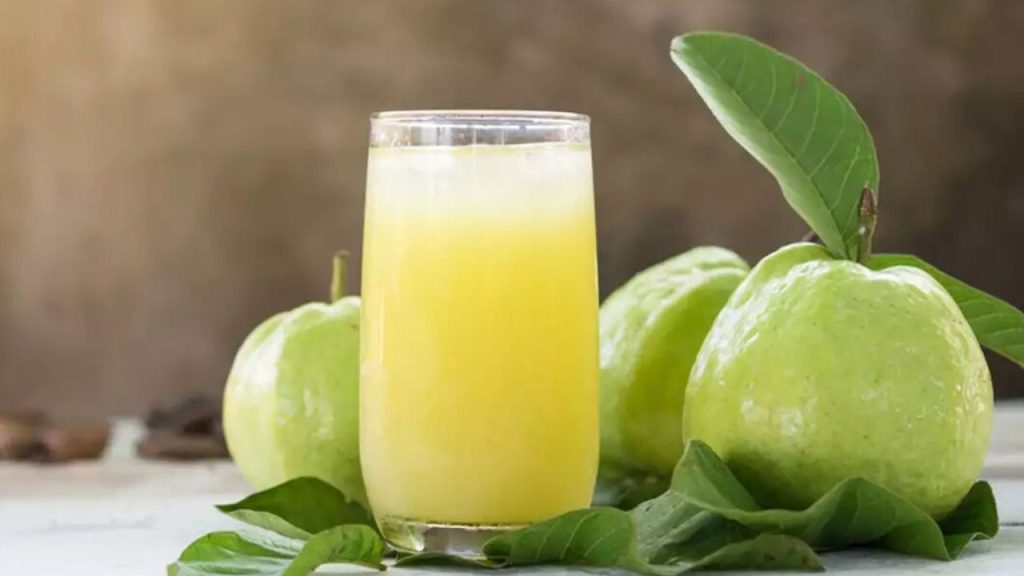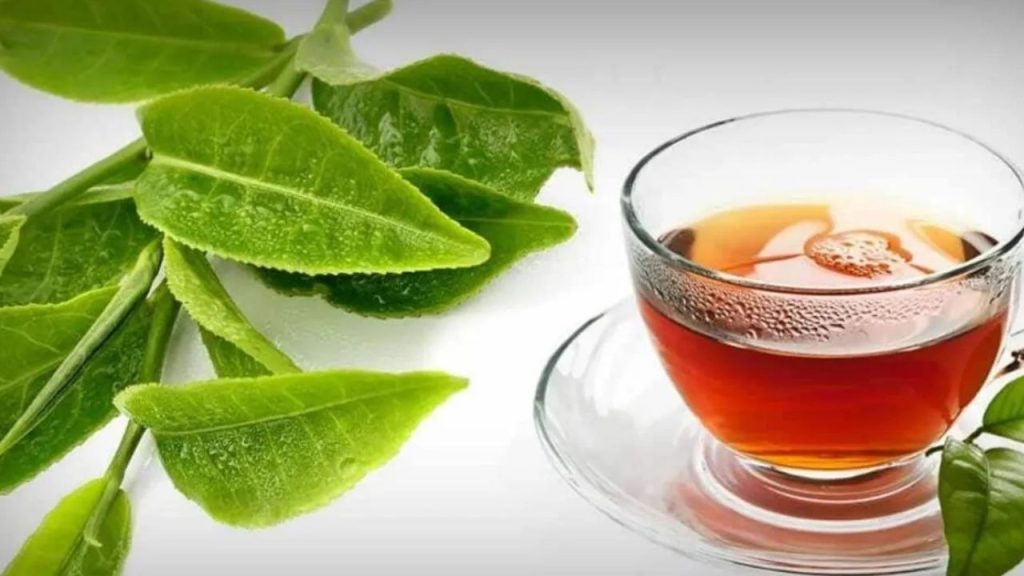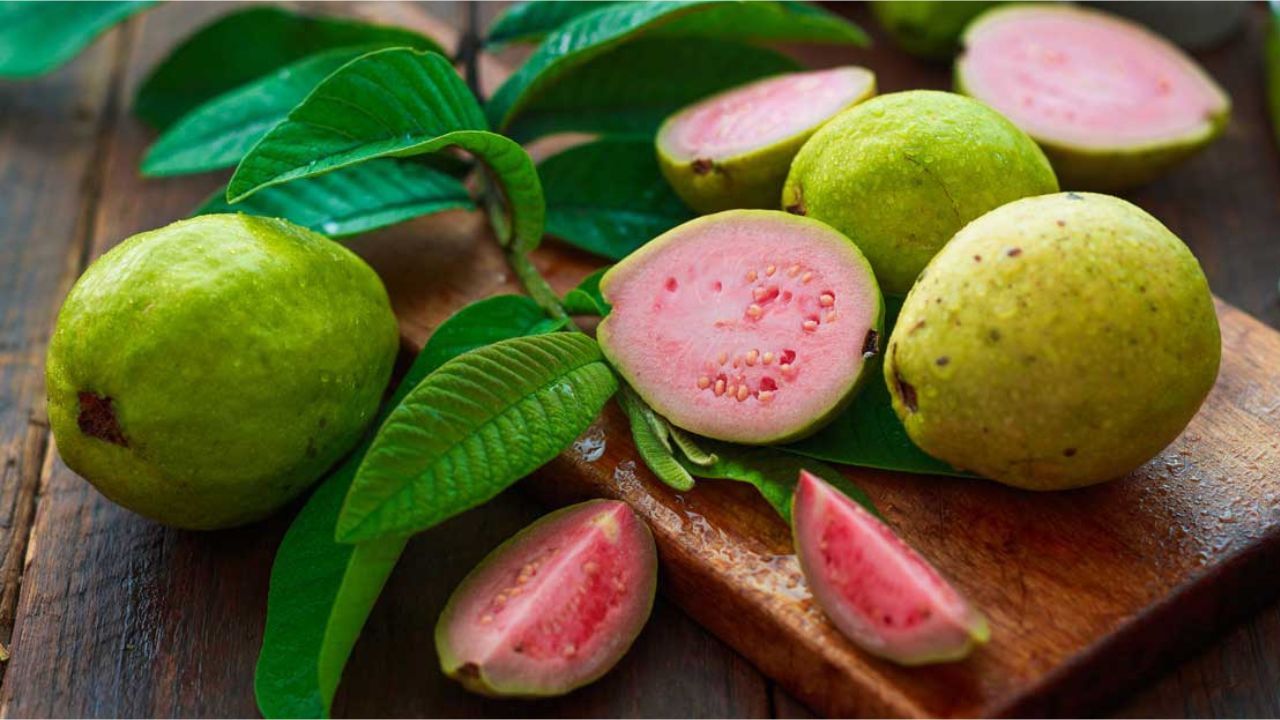10 Health benefits of Guava
Guava (Psidium guajava) is a tropical fruit celebrated not only for its delightful taste but also for its impressive array of health benefits. Packed with essential nutrients, guava and its leaves have been integral to traditional medicine and modern health practices alike. This article delves into the myriad health advantages of guava, highlighting its nutritional profile and therapeutic potential.
Nutritional Powerhouse
Guava stands out as a nutrient-dense fruit, offering a wealth of vitamins, minerals, and antioxidants. A single cup (approximately 165 grams) of raw guava provides:
- Calories: 112
- Protein: 4.2 grams
- Fiber: 8.9 grams
- Vitamin C: 376 mg (over 400% of the recommended daily intake)
- Potassium: 688 mg
- Folate: 81 mcg
- Vitamin A: 1030 IU
This rich nutritional profile underscores guava’s potential in supporting various aspects of health.

-
Immune System Support
Guava is exceptionally high in vitamin C, a vital nutrient for immune function. Vitamin C enhances the production and activity of white blood cells, which defend the body against infections. Consuming guava regularly can help bolster the immune system, reducing the risk of common illnesses like colds and flu.Click here
-
Heart Health Enhancement
The fiber, potassium, and antioxidants in guava contribute to cardiovascular well-being. Potassium helps regulate blood pressure, while dietary fiber aids in lowering cholesterol levels. Antioxidants combat oxidative stress, reducing the risk of heart disease. Studies have shown that regular guava consumption can lead to improved lipid profiles and blood pressure readings.
-
Blood Sugar Regulation
Guava has a low glycemic index and high fiber content, making it beneficial for blood sugar control. The fiber slows down sugar absorption, preventing spikes in blood glucose levels. Additionally, guava leaf extracts have been found to improve insulin sensitivity and reduce post-meal blood sugar rises, offering potential benefits for individuals with diabetes or those at risk.
-
Digestive Health Promotion
With nearly 9 grams of fiber per cup, guava supports healthy digestion. Dietary fiber adds bulk to stool, facilitating regular bowel movements and preventing constipation. Moreover, guava’s natural compounds have antimicrobial properties that can help maintain a balanced gut microbiome, further enhancing digestive health.

-
Weight Management Aid
Guava is a satisfying, low-calorie snack that can assist in weight management. Its high fiber content promotes a feeling of fullness, reducing overall calorie intake. Unlike many low-calorie foods, guava is rich in essential nutrients, ensuring that the body receives necessary vitamins and minerals even when calorie consumption is reduced.
-
Skin and Vision Benefits
The antioxidants in guava, including vitamin C and beta-carotene, play a role in maintaining healthy skin and vision. Vitamin C is crucial for collagen synthesis, which keeps the skin firm and youthful. Beta-carotene, a precursor to vitamin A, supports eye health and may reduce the risk of age-related macular degeneration.
-
Menstrual Pain Relief
Guava leaf extracts have been traditionally used to alleviate menstrual discomfort. Research indicates that these extracts can reduce the intensity of menstrual cramps, likely due to their antispasmodic properties that relax uterine muscles. Consuming guava leaf tea during menstruation may offer natural relief from pain.

-
Anticancer Properties
Guava is rich in antioxidants like lycopene and quercetin, which have been studied for their potential anticancer effects. These compounds neutralize free radicals, preventing cellular damage that can lead to cancer development. While more research is needed, incorporating antioxidant-rich foods like guava into the diet is a proactive step toward cancer prevention.
-
Cognitive Function Support
The nutrients in guava, particularly vitamin C and B-complex vitamins, contribute to brain health. Vitamin C protects against oxidative stress in the brain, while B vitamins are essential for neurotransmitter function. Regular consumption of guava may enhance cognitive functions such as memory and concentration.
-
Stress Reduction
Guava leaves contain compounds that have a calming effect on the nervous system. Drinking guava leaf tea can help reduce stress and anxiety levels, promoting relaxation. This natural remedy offers a gentle alternative to pharmaceutical options for managing stress.

Incorporating Guava into Your Diet
Guava is versatile and can be enjoyed in various forms:
- Fresh: Eat ripe guava as a snack or add it to fruit salads.
- Juice: Blend guava with water or other fruits for a refreshing drink.
- Tea: Steep guava leaves in hot water to make a soothing herbal tea.
- Desserts: Use guava in jams, jellies, or baked goods for a tropical twist.
When selecting guava, look for fruits that are slightly soft to the touch with a fragrant aroma, indicating ripeness. Store ripe guavas in the refrigerator and consume them within a few days for optimal freshness.
Precautions and Considerations
While guava is generally safe for most people, excessive consumption may lead to digestive discomfort due to its high fiber content. Individuals with certain health conditions, such as kidney disorders, should consult a healthcare provider before significantly increasing their guava intake, given its potassium content.Click here
Conclusion
Guava is more than just a delicious tropical fruit; it’s a powerhouse of nutrition with a wide range of health benefits. From boosting immunity and supporting heart health to aiding digestion and providing relief from menstrual pain, guava is a valuable addition to a balanced diet. Incorporating this versatile fruit into your meals can contribute to overall well-being and vitality.

